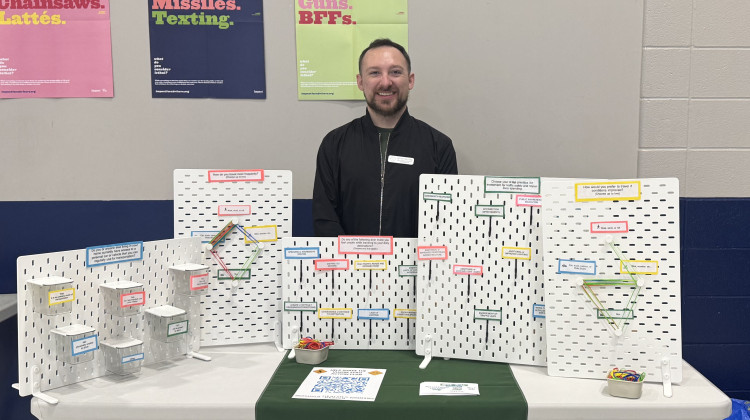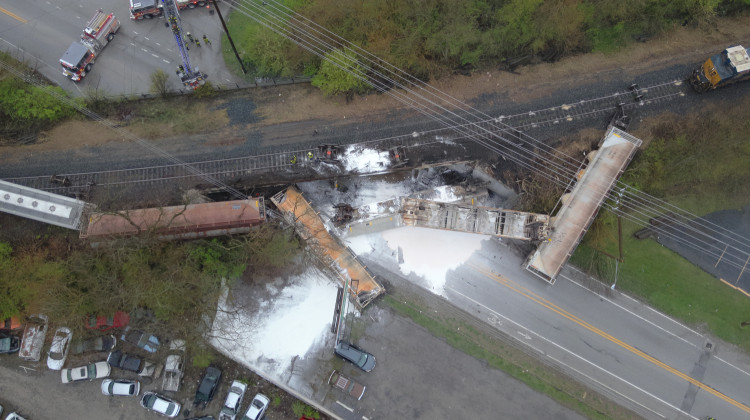
The Indiana Public Broadcasting-Ball State Hoosier Survey reported nearly 16 percent of Hoosiers have not spoken to or spent time with their neighbors in the past 12 months.
Lauren ChapmanNearly 16 percent of Hoosiers have not had a conversation or spent time with their neighbors in the past year. That could point to social isolation.
The Indiana Public Broadcasting-Ball State Hoosier Survey reported that this leaves about 24 percent of Hoosiers who spoke to or spent time with their neighbors once a month or less.
Chad Kinsella is the managing director of the Ball State University Bowen Center for Public Affairs. He said technology is a large contributor to these trends.
“One of the bad guys I would say is technology,” he said. ‘It’s easier to be secluded and be online or playing games or whatever it is that we do being on social media. And instead of, you know, the people that are in actual close proximity to us.”
Kinsella said social media, in particular, can often lead people to isolate from their neighbors by assimilating into like-minded circles.
“You can cherry pick on social media, whereas outside your door, you may have to talk to somebody who doesn't have the same political ideas as you,” he said.
Kinsella said this often explains why people hold polarized views, as they are able to control who they interact with on these platforms.
READ MORE: A majority of Hoosiers support broad abortion rights, despite General Assembly's ban
Join the conversation and sign up for the Indiana Two-Way. Text "Indiana" to 73224. Your comments and questions in response to our weekly text help us find the answers you need on statewide issues.
He also noted this data shows that younger people are less likely to interact with their neighbors than older people. Only about 16 percent of those aged 18-34 speak to their neighbors every day, as opposed to 51 percent of those aged 35-54 and about 33 percent of those aged 55 or older.
Kinsella said COVID-19 likely impacted these trends.
“There's a generation that had to deal with COVID that really kind of set them back kind of socially,” he said. “And I think for them, I think it's more socially OK not to talk to your neighbor.”
Kinsella also said those with more education tended to speak with their neighbors more than those with less education. About 18 percent of those with a high school education or less tend to speak to their neighbors every day. That’s compared to more than 34 percent of people with some college education and over 32 percent of people who are college graduates.
Kinsella said these statistics point to potential “political, social and psychological problems” that can affect people’s mental health.
“It's very difficult as people become less socially apt to talk to strangers and able to do that,” he said. “They just don't and so there's mental health problems that come from that, and it's probably not healthy.”
The Hoosier Survey polled 600 people in late October and early November. The margin of error is plus or minus 4 percentage points. The interviews were conducted by telephone (42 by landline and 257 by cell phone) and online.
Contact reporter Violet at vcomberwilen@wfyi.org or follow her on Twitter at @ComberWilen.
9(MDAyMzk1MzA4MDE2MjY3OTY1MjM5ZDJjYQ000))
 DONATE
DONATE






 Support WFYI. We can't do it without you.
Support WFYI. We can't do it without you.